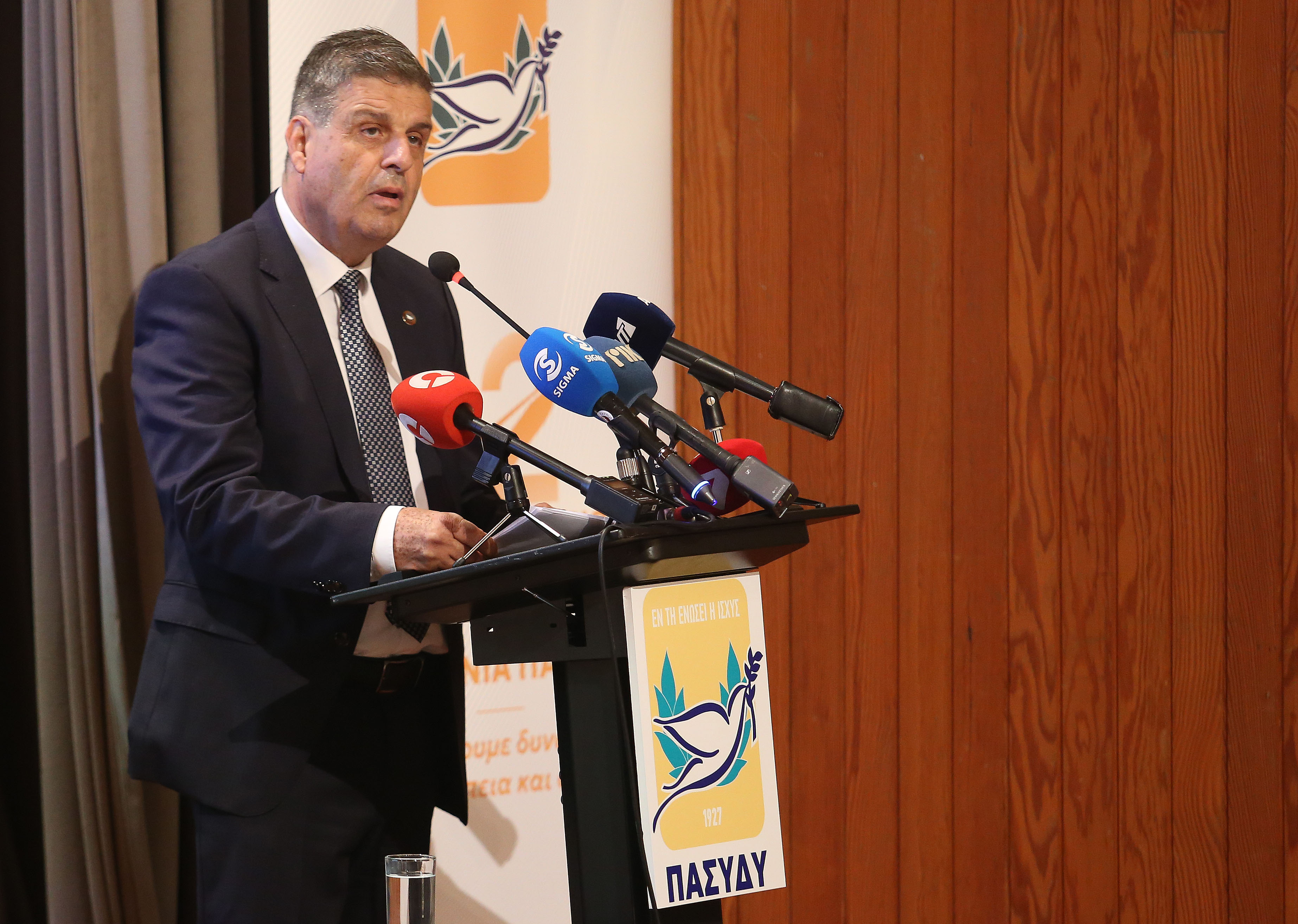President Nikos Christodoulides acknowledged the civil service’s negative image on Tuesday, saying however that it had been a driver in difficult times, such as after the Turkish invasion in 1974, during the EU presidency in 2012, in handling the 2013 haircut and through the Covid-19 pandemic.
“I am certain that with the same zeal, dedication and success, the civil service will respond with absolute success during the upcoming assumption of the EU presidency by our country in the first half of 2026,” the president said, addressing the civil servants’ trade union Pasydy congress in Nicosia.
Pasydy general secretary Stratis Mattheou made it clear that IMF proposals for the civil service could not be implemented or accepted and that Pasydy would under no circumstances consent to the reduction of benefits for public sector employees.
Instead, he took the opportunity to present a series of demands, such as modernisation, reforms and digitalisation, which would address red tape and benefit the civil servants.
Pasydy president Antonis Koutsoullis praised the role and service of civil servants over the years in the implementation of government decisions, and called on those in power to contribute to solving their problems.
Having been a member of Pasydy himself in the past, Christodoulides said he was in a position to know the positive side too, including the trade union’s professionalism and responsibility in handling labour issues.
“This rightfully makes it a fundamental social partner and associate of the executive power in the effort to formulate and promote policies that contribute to the progress of the workers and the wellbeing of the people in general,” he said.
Christodoulides also referred to the challenges faced by the civil service and the country as a whole, which made it imperative for improvements and modernisation to be introduced.
“No one questions the fact that the fundamental mission of the civil service is to quickly and efficiently serve the Cypriots and the businesses, of course within the framework of legality,” he said.
The president referred to various policies that have been promoted to make the civil service a modern, flexible and effective body.

As an example, he cited the criteria and exams for employees to make employment fair and transparent, adding that efforts were ongoing to smooth out the payroll so that there were no injustices.
“In the ever-changing international and regional environment we are called upon to operate in, it is imperative, not only to maintain, but more importantly to strengthen the resilience and competitiveness of the Cypriot economy,” he said.
He assured Pasydy that his government would “not follow policies that led us to 2013, […] which was the result of irresponsible policies”.
The president referred to tax reforms, aiming at strengthening the middle class, as well as policies to reconcile work and family life.
Before the end of May, he added, a series of policies would be tabled at the cabinet for approval, including reduced working hours for parents, carers and people with disabilities and health problems.
Other policies are extending the flexible working hours to two hours and the gradual implementation of a mixed work schedule, with physical presence and working from home.
On the cost-of-living allowance, Christodoulides said he did not disagree with Pasydy’s positions, however he wished to focus on a fair distribution of CoLA, which would be discussed soon.
The digital transformation of services was also mentioned, with the president saying that more and more services were being added to the gov.cy portal and that an AI assistant has been up and running since the end of 2024, as well as the ‘digital citizen’ for creating and storing certificates in digital form.
“Everything I have mentioned demonstrates our practical and substantial will to improve the operation of the civil service, as well as the enormous potential for more effective service to people through the use of technology and communications,” he added.
He pointed out that special importance was being given to the code of conduct for civil servants, which was recently approved by the cabinet, aiming at safeguarding the prestige and credibility of the civil service, since “we are all accountable” to the people.
“I am sure we all agree that increasing productivity in the civil service will contribute to the further development and strengthening of the competitiveness of the Cypriot economy, so that our economy continues to record one of the highest growth rates in the Eurozone, conditions of full employment with unemployment being below 5 per cent, a strong public surplus and the gradual reduction of public debt.
“It is all these developments that allow us to make targeted social interventions and that is why it is imperative that we continue on this path, with the same sense of responsibility,” the president said.
“In this great effort to promote the necessary reforms for the modernisation of our state, we approach Pasydy and all social partners as fellow travellers,” he added.
“Together, through continuous cooperation and consultation, I am confident that we can achieve the common goal of a modern and productive state, a model of transparency,” Christodoulides said.






Click here to change your cookie preferences